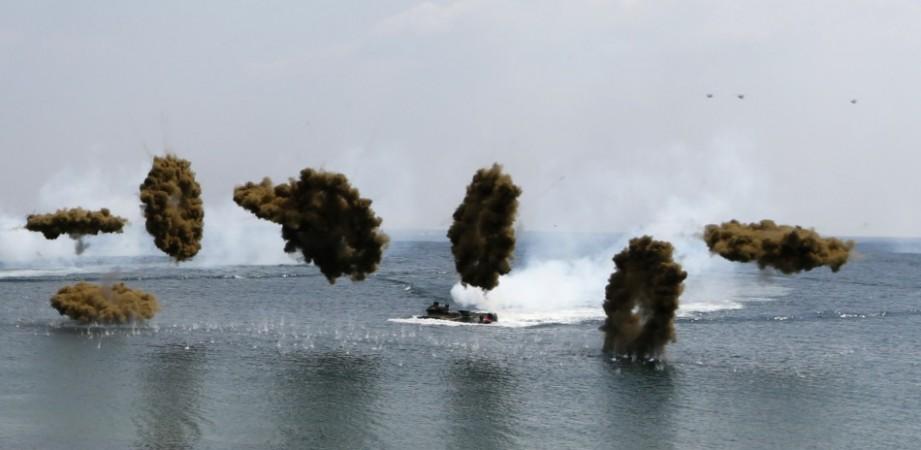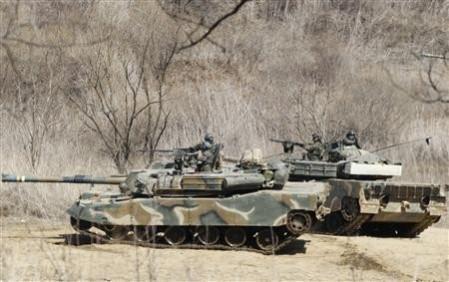
A lot has happened on the Korean peninsula in the last couple of months -- an unseemly meeting of two of the world's most unpredictable leaders, denuclearisation hopes and expectations of permanent peace between the Koreas technically at war. The latest in that series is Seoul's decision to massively cut back on the ground troops and shorten mandatory military service.
Seoul's abrupt move left many in the country's defence establishment unhappy. "This is a risky experiment in defense that puts national security at stake," Chosun Ilbo quoted Shin Won-sik, a former vice chairman of the Joint Chiefs of Staff, as saying.
According to English language daily, as per the new military policy approved by President Moon Jae-in, as many as 118,000 ground troops will be jettisoned. Under the new policy, the military's top-heavy command structure will be retooled, resulting in the abolition of 18 percent of general-level positions.
When the cutbacks come to full effect by 2022, North Korea's military personnel numbers will compare even more poorly with those of rival North Korea. At 618,000, South Korea's active combat troop numbers were about the half of North's 1.28 million. As per the latest policy, Seoul's troop numbers will come down to 500,000.
When the cutbacks are in place, the number of Army divisions will be reduced from 39 to 33 and frontline divisions will be pruned from 11 to nine, the paper reported.
What are the strategy considerations?
It's clear that South Korea is cutting back the numbers only in the Army. The number of combat troops will remain the same in the Navy and the Air Force. Army officers cited by Chosun Ilbo say that even as personnel numbers are cut down, unmanned surveillance will be reinforced and the military's firepower will be augmented.

However, at the same time, not everyone in the establishment is convinced about the ratioanle othe cutbacks at this juncture.
"The reform plans do not reflect either the current security situation or suggestions from field military units," Chosun Ilbo quoted an officer as saying.
After the historic meeting between US President Donald Trump and North Korean dictator Kim Jong-un in Singapore last month, there has been heighteend expectations about normalistaion of the relations between the two couintries and the denuclearisation of the peninsula.
But considering the complex nature of the issue and the unpredictable nature of the North Korean leadership, the skeptics have taken a cautious line.
"Declaring an end to the Korean War without significant progress on denuclearisation is a grave mistake ... It must happen at least when North Korea has declared its nuclear facilities. Otherwise, we could end up paying too high a price for North Korea's trivial denuclearisation measures," Shin Beom-chul, a senior fellow at the Asan Institute for Policy Studies, told the Straits Times last week.









